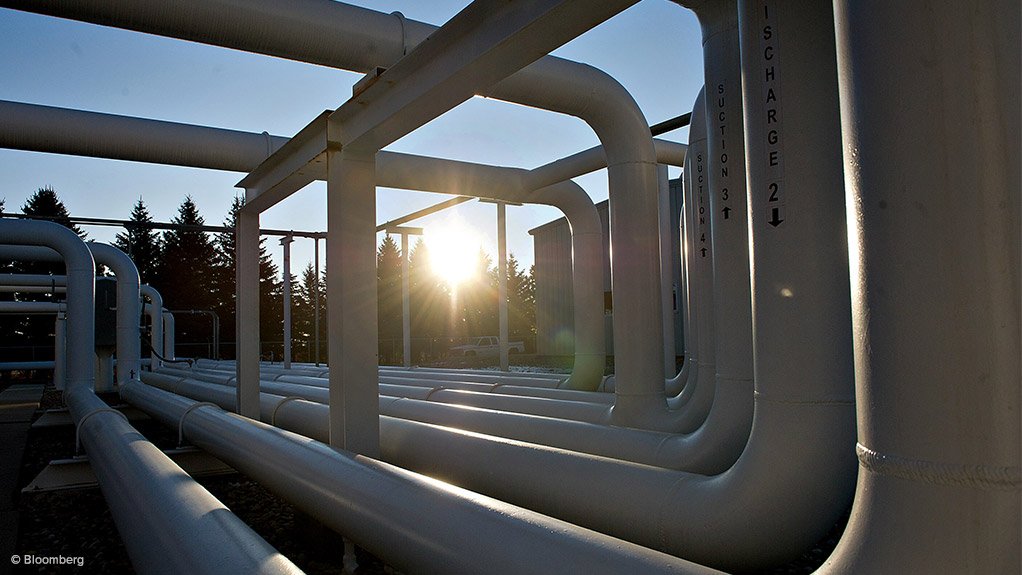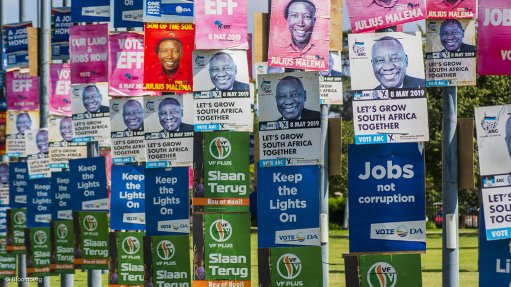Southern Africa’s gas, private energy sector at ‘tipping point ‘ – Standard Bank
Following the recent announcement of the 13 preferred bidders for 1 121 MW of capacity under the enlarged bid window 4 of the Department of Energy’s (DoE’s) Renewable Energy Independent Power Producer Procurement Programme (REIPPPP), the May issuance of a request for information (RFI) for South African gas-to-power projects and the selection of a contractor for a 12-million-ton-a-year liquefied natural gas plant, in Mozambique, Standard Bank believes the Southern African region’s gas and private energy sector has reached a “tipping point”.
According to Standard Bank oil & gas head Paul Eardley-Taylor, Southern Africa was in the process of “catching up” on a 30-year trend that had seen increased demand for gas as a substitute for coal and oil, with South Africa’s REIPPPP providing the basis for a potential gas and renewables new build portfolio, in line with developed States, such as the US.
Moreover, South Africa’s gas RFI could lead to total investment of between $4-billion and $5-billion by 2017, which would be mainly liquefied natural gas- (LNG-) driven, while a further ‘’tipping point’’ could be whether Eskom would join the process and seek to replace its R18-billion a year in diesel purchases with LNG.
“In recent years, we have seen significant gas discoveries in Mozambique and Tanzania, while South Africa is estimated to have large quantities of shale gas resources, as well as potential offshore resources… Southern Africa seems to be at the ‘tipping point’ of developing a natural gas-driven economy,” he told the Gas Africa conference, on Wednesday.
Citing a particularly “exciting” regional energy project, Eardley-Taylor said the exploration of Area 1 of the Rovuma Basin gasfields, in Mozambique, by project partners Anadarko and Eni, offered confirmed recoverable reserves of over 75-trillion cubic feet (tcf) and possible reserves of up to 200 tcf, priming it to become the largest commercial project on the African continent.
“This is a rock-solid project with two sponsors that have, thus far, invested over $5-billion and the potential to transform the Mozambique economy through knock-on effects down the LNG value chain. It is also expected to become the world’s second-largest LNG site after Ras Laffan, in Qatar.
“As with other global markets, developing an LNG export plant is expected to unlock Mozambique’s economic future. This could change Mozambique forever,” he commented.
Eardley-Taylor cautioned, however, that securing LNG offtake contracts was key to unlocking Mozambique’s energy future.
“Without it, nothing will happen,” he remarked.
Assigning the LNG project a “high probability” of financial closure in 2016, Standard Bank said Anadarko had publically stated that it continued to aim for a final investment decision this year, with production to start in 2019.
Initial development would start with two LNG trains – or liquefaction and purification facilities – with the possibility to ramp up to ten trains.
A further “major” step in the advancement of the project had been the May announcement that a joint venture, led by construction and engineering group CB&I, had been awarded the onshore engineering, procurement and construction contract – estimated at $12-billion.
All-in project costs, including historic exploration costs, were envisaged at between $22-billion and $24-billion – over 130% of Mozambique’s current gross domestic product (GDP).
Heads of agreement had, meanwhile, been reached for sales of over 80% of the first two trains for 20 years – mostly from Asian buyers – while the project developers had received letters of intent for over 60% of its debt requirements, including from Standard Bank.
The companies were also engaged in ongoing negotiations with the government on domestic gas sales.
According to a recent macroeconomic study by Standard Bank on the potential of LNG in Mozambique, Eardley-Taylor expected “large” employment and GDP impacts from gas-based small, medium-sized and microenterprise development.
“Domestic gas will create major comparative advantages for Mozambique [which] will have a huge transformational potential and drive growth and employment creation.
“As with Oman and Qatar, Mozambique is likely to develop a strong domestic gas sector to broaden and deepen its national economy,” he said.
Comments
Press Office
Announcements
What's On
Subscribe to improve your user experience...
Option 1 (equivalent of R125 a month):
Receive a weekly copy of Creamer Media's Engineering News & Mining Weekly magazine
(print copy for those in South Africa and e-magazine for those outside of South Africa)
Receive daily email newsletters
Access to full search results
Access archive of magazine back copies
Access to Projects in Progress
Access to ONE Research Report of your choice in PDF format
Option 2 (equivalent of R375 a month):
All benefits from Option 1
PLUS
Access to Creamer Media's Research Channel Africa for ALL Research Reports, in PDF format, on various industrial and mining sectors
including Electricity; Water; Energy Transition; Hydrogen; Roads, Rail and Ports; Coal; Gold; Platinum; Battery Metals; etc.
Already a subscriber?
Forgotten your password?
Receive weekly copy of Creamer Media's Engineering News & Mining Weekly magazine (print copy for those in South Africa and e-magazine for those outside of South Africa)
➕
Recieve daily email newsletters
➕
Access to full search results
➕
Access archive of magazine back copies
➕
Access to Projects in Progress
➕
Access to ONE Research Report of your choice in PDF format
RESEARCH CHANNEL AFRICA
R4500 (equivalent of R375 a month)
SUBSCRIBEAll benefits from Option 1
➕
Access to Creamer Media's Research Channel Africa for ALL Research Reports on various industrial and mining sectors, in PDF format, including on:
Electricity
➕
Water
➕
Energy Transition
➕
Hydrogen
➕
Roads, Rail and Ports
➕
Coal
➕
Gold
➕
Platinum
➕
Battery Metals
➕
etc.
Receive all benefits from Option 1 or Option 2 delivered to numerous people at your company
➕
Multiple User names and Passwords for simultaneous log-ins
➕
Intranet integration access to all in your organisation




















